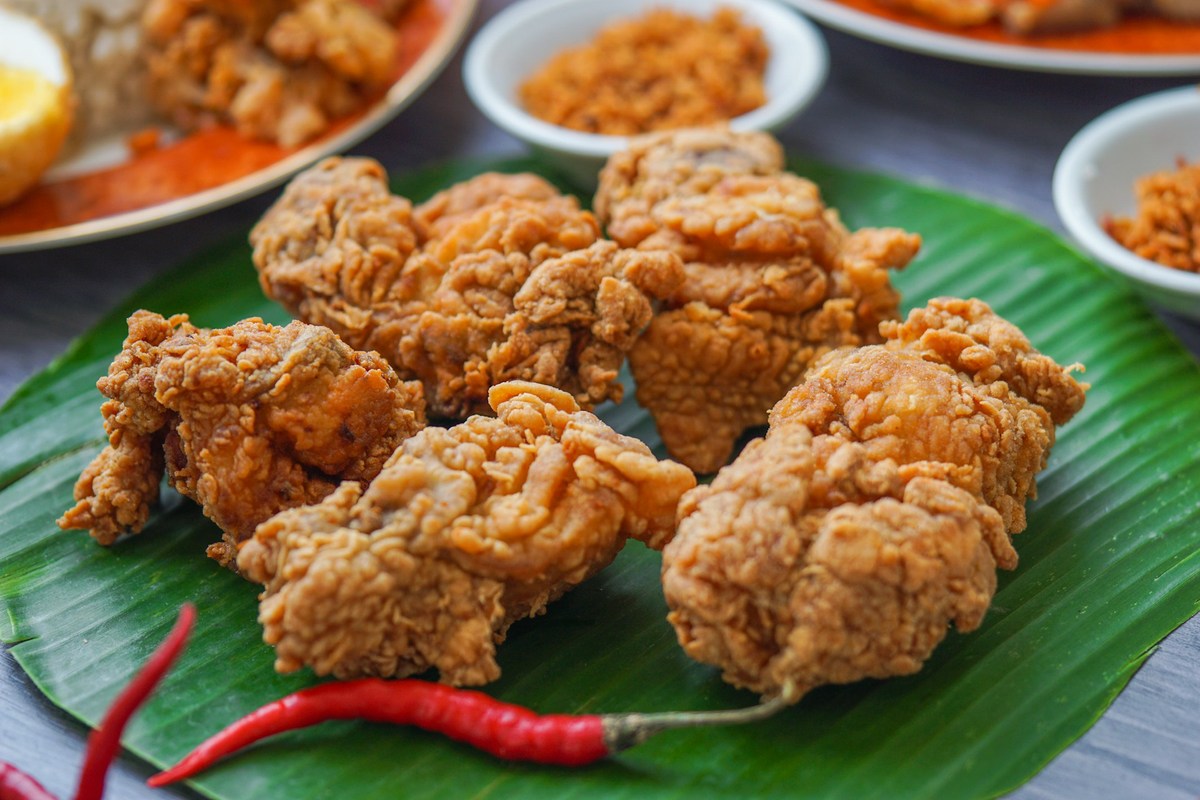一顿炸鸡可以解决不开心了?日常生活中难免有压力大的时候,遇到这种情况,很多人选择吃一顿炸鸡、炸薯条、炸串……这些食物真能让人缓解压力、释放快乐吗?错了!
最近研究发现,经常吃这类食品并不会让人真正放松和愉悦!相反,可能会增加负面情绪。

[Photo/Unsplash]
When we’re stressed out, many of us turn to junk food for solace. But new CU Boulder research suggests this strategy may backfire.
许多人在压力大时会选择用垃圾食品来安慰自己。但科罗拉多大学博尔德分校的一项新研究表明,这种策略可能适得其反。
The study found that in animals, a high-fat diet disrupts resident gut bacteria, alters behavior and, through a complex pathway connecting the gut to the brain, influences brain chemicals in ways that fuel anxiety.
研究发现,动物实验显示,高脂肪饮食可能破坏体内的肠道菌群,并通过肠道和大脑之间的复杂通路,影响大脑中的化学物质,从而加剧焦虑。
“Everyone knows that these are not healthy foods, but we tend to think about them strictly in terms of a little weight gain,” said lead author Christopher Lowry, a professor of integrative physiology at CU Boulder. “If you understand that they also impact your brain in a way that can promote anxiety, that makes the stakes even higher.”
该研究的主要作者、科罗拉多大学博尔德分校综合生理学教授克里斯托弗·罗瑞称,“大家都知道高脂肪食物不健康,但我们往往只是从控制体重的角度出发。如果你明白它们还会以加剧焦虑的方式影响你的大脑,那么其危害就更大了。”
In a previous study, the team found that rats fed a high-fat diet consisting primarily of saturated fat showed increases in neuroinflammation and anxiety-like behavior.
在之前的一项研究中,研究团队发现,饲喂高脂肪饮食(主要由饱和脂肪组成)的大鼠表现出神经炎症和类似焦虑行为增加。
While evidence is mixed, some human studies have also shown that replacing a high-fat, high-sugar, ultra-processed diet with a healthier one can reduce depression and anxiety.
尽管证据不一,但一些人类研究也表明,用更健康的饮食替代高脂肪、高糖、超加工饮食可以减少抑郁和焦虑。
To better understand what may be driving the fat-anxiety connection, Lowry’s team divided male adolescent rats into two groups: Half got a standard diet of about 11% fat for nine weeks; the others got a high-fat diet of 45% fat, consisting mostly of saturated fat from animal products.
为了更好地理解是什么导致了脂肪焦虑的联系,研究团队将处于“青春期”年龄段的大鼠分为两组:其中一组大鼠连续9周被投喂约含11%脂肪的标准饮食,另一组则吃含45%脂肪的高脂肪饮食,这些脂肪主要是动物产品中的饱和脂肪。
Throughout the study, the researchers collected fecal samples and assessed the animals’ microbiome, or gut bacteria. After nine weeks, the animals underwent behavioral tests.
整个研究过程中,研究人员收集实验鼠粪便样本,评估它们的肠道细菌状况。9周的饮食实验后,这些实验鼠接受了行为测试。
When compared to the control group, the group eating a high-fat diet, not surprisingly, gained weight. But the animals also showed significantly less diversity of gut bacteria.
结果显示,与对照组相比,高脂饮食组的实验鼠不仅体重增加,其肠道细菌多样性也明显较低。
The high-fat diet group also showed higher expression of three genes (tph2, htr1a, and slc6a4) involved in production and signaling of the neurotransmitter serotonin—particularly in a region of the brainstem known as the dorsal raphe nucleus cDRD, which is associated with stress and anxiety.
高脂肪饮食组还显示,大鼠体内与神经递质血清素的产生和信号传递有关的三个基因表达(tph2, htr1a, slc6a4)水平较高,且在脑干中缝背核的某一区域尤其明显,该区域与压力和焦虑有关。
While serotonin is often billed as a “feel-good brain chemical,” Lowry notes that certain subsets of serotonin neurons can, when activated, prompt anxiety-like responses in animals. Notably, heightened expression of tph2, or tryptophan hydroxylase, in the cDRD has been associated with mood disorders and suicide risk in humans.
尽管血清素通常被认为是一种“让人感觉良好的大脑化学物质”,罗瑞指出,当某些血清素神经元亚群被激活时,可以在动物中引发类似焦虑的反应。值得注意的是,cDRD中tph2(或色氨酸羟化酶)的表达增加与人类的情绪障碍和自杀风险相关。
Lowry stresses that not all fats are bad, and that healthy fats like those found in fish, olive oil, nuts and seeds can be anti-inflammatory and good for the brain.
罗瑞强调,并非所有的脂肪都是有害的,鱼类、橄榄油、坚果和种子中的健康脂肪可以抗炎,对大脑有益。
But his research in animals suggests that exposure to an ultra-high-fat diet consisting of predominantly saturated fats, particularly at a young age, could both boost anxiety in the short-term and prime the brain to be more prone to it in the future.
但对动物的研究表明,摄入以饱和脂肪为主的超高脂肪食物,尤其是在年轻的时候,既可以在短期内加剧焦虑,也可以使大脑在未来更容易产生焦虑。
英文来源:科罗拉多大学博尔德分校官网
编辑:董静
审校:陈丹妮 万月英